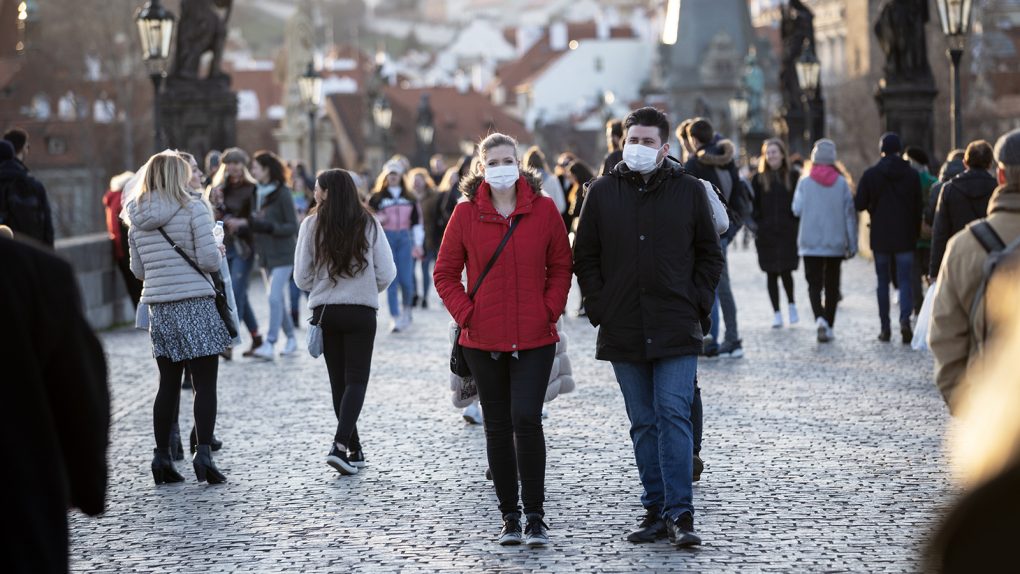- The first coronavirus vaccines might be ready for emergency use in late 2020, with a wide rollout expected for the first half of next year.
- Health experts warn that the virus is likely to become endemic just like the flu, regardless of whether or not there’s a vaccine to reduce the spread.
- Doctors say hoping that a vaccine will eliminate the virus is the wrong approach, and the population should learn to live with COVID-19 while taking all the necessary precautions to avoid infection.
About a dozen coronavirus vaccine candidates are in the final stages of testing right now, and some of them will soon complete Phase 3 trials. At that point, they’ll be able to seek emergency use authorization from the FDA, assuming the experimental drugs are proven to be effective and safe. But success isn’t guaranteed, no matter how promising the early phases of clinical trials were. These drugs can fail during Phase 3 and the world might need to wait even more time for a useable vaccine to emerge. Even in such a scenario, the good news is that hundreds of other promising COVID-19 vaccine projects are being developed and some of them are bound to work.
That’s great news, but you shouldn’t expect a vaccine to eradicate COVID-19. Health experts warn that the coronavirus virus will not disappear anytime soon, even if vaccines are available. Instead, the virus will likely become endemic, much like the flu, and countries will need to ensure they’re ready to deal with flareups of the illness for the foreseeable future.
Dr. David Heymann led the World Health Organization’s infectious disease unit during the SARS epidemic in 2002-2003. SARS has miraculously disappeared, which seems like good news since the novel coronavirus is related to it — that’s why it’s called SARS-CoV-2. But unlike SARS, the new coronavirus is here to stay, Heymann said during a webinar for think tank Chatham House on Wednesday.
“The difficulty right now is that in many countries, they are looking forward to a vaccine which may or may not come, which may or may not be effective in the short or long term, and they are looking at possible therapeutic (options) which could solve many of the problems,” Heymann said. “But, that’s not a good way to proceed at present. We have to learn to live with the pandemic.”
The warning seems familiar, and that’s because we’ve heard it before. The WHO made it clear that the coronavirus is here to stay months ago. We explained at the time that advances in COVID-19 therapies were already preventing severe complications and that treatment protocols will be further improved. With or without a vaccine, COVID-19 will be a lot more manageable once more effective therapies arrive, including a possible cure. Recent studies have indeed shown that the COVID-19 death rate has already been reduced dramatically. One look at COVID-19 statistics would prove that, as recent spikes in case numbers have not been followed by spikes in the death toll.
Dr. Anthony Fauci also said in interviews that vaccines wouldn’t eradicate COVID-19.
Separately, Patrick Vallance said earlier this week the illness is likely to become as endemic as the flu. Vallance, the UK’s chief scientific advisor, also told the National Security Strategy Committee in London that a vaccine might not be able to stop COVID-19 from becoming endemic, according to CNBC.
Heymann also indicated that SARS-CoV-2 wouldn’t even be the first coronavirus to become endemic. Four other human coronaviruses circulate regularly inside communities, and they’re responsible for common colds that can be treated with over-the-counter meds. The health expert indicated that our goal shouldn’t be the eradication of the virus.
“I think the answer is that, yes, this will become endemic,” he said. “We shouldn’t just be trying to suppress this virus out of existence or trying to suppress it to a level that’s unrealistic. We have to be able to suppress it to a level where it causes minimum damage while at the same time entering a country and becoming endemic.”
Heymann also explained that people need to adapt and learn how to live with the pandemic by doing their own risk assessment, “as they do for sexually transmitted infections, as they do for tuberculosis, as they do for other infections.”
“They must do their own risk assessments and understand what measures they can take to prevent themselves from becoming infected and to prevent others from becoming infected,” he said. “It’s all about people understanding that this virus if it is destined to become endemic, will become endemic no matter what we do. But we can slow that to a certain level that causes less disruption in our societies and lesser death.”








